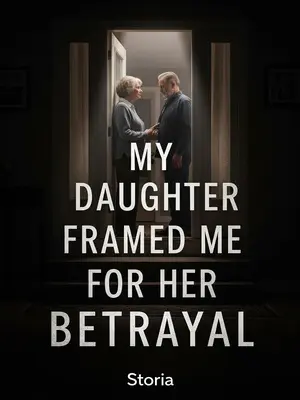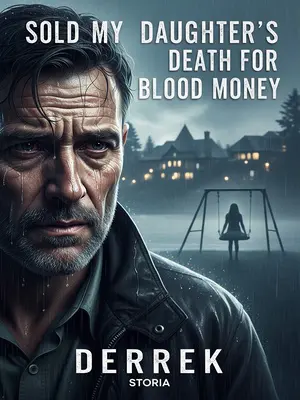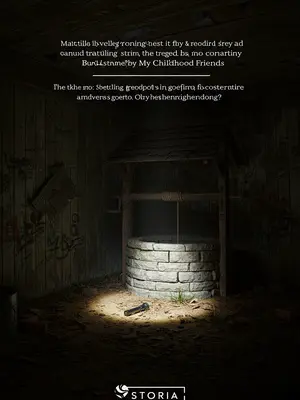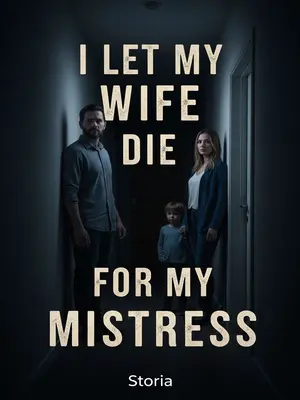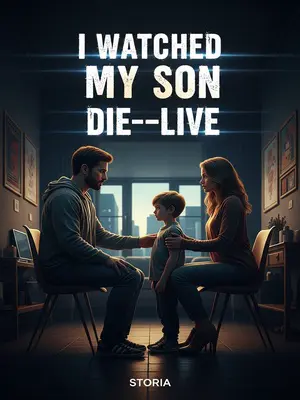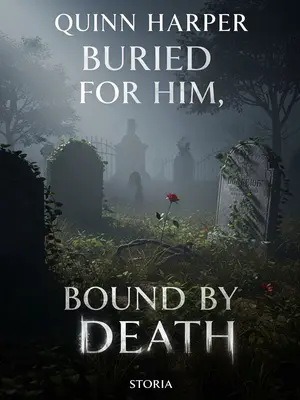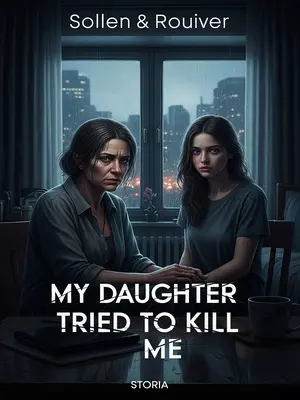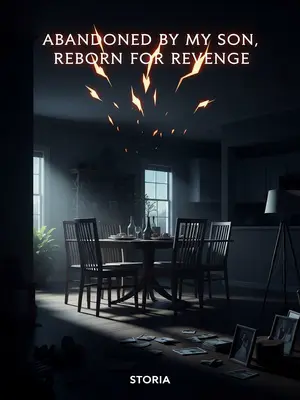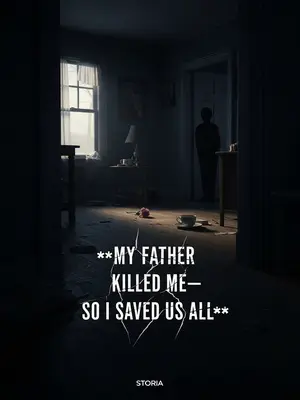Chapter 2: The Last Game
Twenty years ago—
Our daughter's name was Kelsey, but we called her Kels. She was a wisp of a thing, all bright eyes and wild hair. The kind of kid who’d get grass stains on her knees every day in summer and leave drawings taped to the fridge for weeks.
If she were still alive, she'd be twenty-eight this year. I did the math in my head, picturing her as a grown woman—maybe married, maybe with a job somewhere in the city. I wondered if she would have sounded like Diane when she laughed.
When Kelsey was eight, Diane and I decided to move to the city for work. Jobs were scarce in small-town Ohio. I’d lost my job at the plant, Diane’s hours at the diner had been cut. The city seemed like the only way out, a chance for a fresh start—or so we thought.
It's not easy for folks from a small Ohio town to make a living in the city, and bringing two kids would be even more of a burden. We barely scraped by as it was, pinching pennies and stretching groceries. The thought of two kids in a city apartment with no help, no family—it felt impossible.
The night before moving, Diane suddenly said she didn't want to take Kelsey to the city, only our seven-year-old son. I’d never seen her look so sure, her voice flat as she folded laundry. "She’ll only hold us back, Mark," she said, not meeting my eyes.
My parents had already passed away, so the kids had no grandparents. If we didn't take our daughter to the city, there'd be no one to look after her. That reality hit me like a punch. The house was quiet, and the weight of the choice pressed in on all sides.
"No need for anyone to look after her. We'll just lock her in the house and pretend we never had her."
My wife's words shocked me. My jaw dropped. The words hung in the air, so absurd and cold they barely sounded real. I tried to speak, but nothing came out.
But she didn't care: "What’s so strange about this? Ain’t right, Mark. How many baby girls in town get abandoned or worse? We raised Kelsey to seven already. That's rare enough."
Her tone was matter-of-fact, as if she was talking about throwing out old shoes. It chilled me to the bone, but I saw the set of her jaw and knew she wouldn’t budge.
"But..."
My voice was small, lost. I tried to find a way to reason with her, but she shot me a look that silenced me.
"Stop talking. I've made up my mind. Listen to me, tomorrow I'll teach you what to do."
She spoke with that old, stubborn certainty. There was no arguing. I turned away, feeling something inside me unravel.
Diane always favored our son and was stubborn as a mule. Folks in town used to joke she’d argue with a stop sign if it stood in her way. I never imagined she’d turn that stubbornness on our own daughter.
The next day—
The sun rose pale and cold, barely breaking through the clouds. My wife and I packed as usual. Kelsey and her younger brother were full of excitement, running around, eager to pack their toys into the big duffel bags.
Their laughter echoed through the house, bouncing off the empty walls. Kelsey kept shoving her favorite stuffed bear, Patchy, into the bag, while her brother chased her, toy cars clattering at their feet.
When the time was right, Diane gave me a look. It was that hard, sharp stare—do it now. My heart thudded in my chest, sweat beading on my forehead. I nodded, just barely.
I understood what she meant, hesitated for a long time, but still walked up to my daughter. Every step felt like walking through mud. I knelt beside her, forcing a smile as she looked up at me, her eyes so trusting.
"Kels, daddy is tired from packing. Let's play hide-and-seek."
I tried to keep my voice light, but my throat was tight. Kelsey’s nose crinkled in that way she always did when she was skeptical.
My daughter never liked hide-and-seek, muttering, "I don't want to play. I want to pack my things."
She fiddled with the zipper on her bag, pouting. I almost caved right there, but Diane’s presence loomed behind me, unyielding.
At this moment, my son stepped in to help: "I want to play hide-and-seek. Sis, play with me."
His voice was bright, innocent. He tugged at Kelsey’s sleeve, bouncing up and down with excitement. He had no idea what was really happening.
I rarely played with the kids; my son really wanted to spend time with me. He smiled up at me, his gap-toothed grin so hopeful. I forced another smile, feeling like the worst kind of coward.
With her brother's insistence, my daughter finally agreed. She huffed but gave in, rolling her eyes in the way that always made Diane laugh. It was the last real smile I ever saw from her.
So I pretended to play with the two kids for a while. We laughed, ducked behind furniture, counted loudly—just like any other family. The moment felt painfully normal, even as dread coiled in my gut.
Until Diane signaled me again with her eyes that the packing was done and we were ready to go. She wiped her hands on her jeans and gave me that final, unwavering nod. The world seemed to shrink to the four of us in that moment.
I knew it was time to act. Everything in me screamed to stop, to grab Kelsey and run. But I just nodded, numb and mechanical.
"Last round. This time, sis hides. Your brother and I will find you. Kels, hide well."
I tried to keep my voice steady, forcing a grin. My son cheered, bouncing on his toes.
My wife also pretended: "Don't worry, I know a great hiding place for hide-and-seek. No one will find Kels. Kels, come, mommy will take you."
She reached out her hand, her voice sweet as honey, masking the steel underneath. Kelsey smiled, trusting, and slipped her small hand into Diane’s.
My wife led my daughter toward the small storage room. The air felt colder as they disappeared down the hallway. I stood with my son, heart pounding, hands shaking so badly I almost dropped his backpack.
Only Diane and I knew that under the storage room was a basement crawlspace. We never talked about it, but the memory of building it with my grandfather was still sharp—the dirt under my nails, the echo of our laughter. It felt like betraying him too, somehow.
The crawlspace was dug many years ago by my great-grandfather, originally to store canned goods and potatoes for winter. As life improved and there was no more fear of going hungry, the crawlspace was abandoned. Nobody went down there anymore. It was dark, musty, and always a little too cold, even in the middle of July.
Inside was an old metal cabinet. It had been there for as long as I could remember. Big and ugly, with peeling army-green paint and a dent on one side from when I’d crashed my tricycle into it as a kid.
The cabinet was thick and heavy. It took three or four people to move it. The door was like a chunk of steel; a kid couldn't open it at all. It was the sort of thing nobody ever noticed, just one more forgotten relic in the dark.
When Diane took Kelsey down, I saw she was carrying a lock. The sight of that padlock—new, shiny—made my stomach twist. I told myself to look away, but I couldn't.
Not long after, the silence upstairs was deafening. I listened for Kelsey’s footsteps, for her laughter, but heard nothing. Diane came up from the crawlspace. Only she came up. Her face was set, lips pressed thin. She didn’t meet my eyes. My son was already in the truck, swinging his feet and humming to himself, oblivious.
That night, we called the police, claiming our daughter was missing. I stammered through the call, voice cracking. Diane sobbed into the receiver, playing the grieving mother with an ease that still haunts me.
Back then, missing kids were sadly common, and with Diane crying her eyes out in front of the police, no one suspected us. The officers nodded sympathetically, promised to put up flyers. They even brought by a casserole the next day. The whole town felt sorry for us.
Twenty years passed in a flash. Our lives moved on, at least on the surface. Our son grew up, went to college, found success. But the memory of that night stuck with me like a shadow I could never shake.
We went back to our old home a few times, but Diane and I never talked about it. Even walking by the house made my stomach churn. We always found excuses not to linger—too busy, too tired, not enough time.
Nor did we ever check the crawlspace. It was like we’d both silently agreed: out of sight, out of mind. But guilt, I’ve learned, doesn’t care about closed doors.
This time, for my son's wedding, I had to go down there. I told Diane I’d handle it, that it was time to lay Kelsey to rest. She didn’t argue. She just handed me the key and turned away, her eyes shining with tears she refused to shed.
"Did you hear what the fortune-teller said about 'the dead buried'? It must be because Kelsey was never buried, and he sensed it. I'll go bury her in the family plot. Hope she can rest in peace and not affect our son's marriage."
I tried to sound matter-of-fact, but my voice quivered. Diane just nodded, face pinched with worry.
Diane said, "Right, go now. Nothing can delay our son's wedding."
She crossed herself—a habit she picked up after we moved to the city—and hugged herself tight. I felt a cold certainty settle in my chest.

